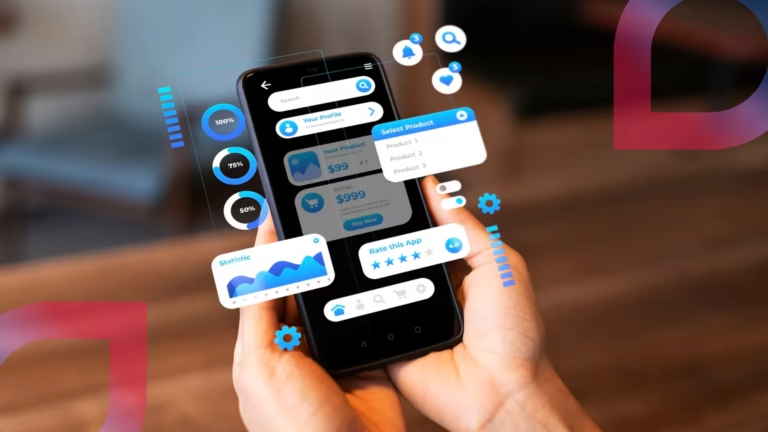The Future of Healthcare: Hospital Mobile App Development. In today’s digital age, the healthcare industry is rapidly evolving to meet the demands of a tech-savvy population. One of the most significant advancements in this sector is the development of hospital mobile applications. These applications are transforming the way patients interact with healthcare providers,
enhancing the efficiency of hospital operations, and improving patient outcomes. At Infotyke, we specialize in developing cutting-edge mobile applications tailored to the unique needs of hospitals. In this blog, we’ll explore the key aspects of hospital mobile app development and how it can revolutionize healthcare services.
The Importance of Hospital Mobile Applications
Hospital mobile applications serve as a bridge between patients and healthcare providers, offering numerous benefits such as:
1. Improved Patient Engagement: Mobile apps provide patients with easy access to their medical records, appointment schedules, and personalized health tips. This fosters better patient engagement and compliance with treatment plans.
2. Enhanced Accessibility: Patients can access healthcare services from the comfort of their homes, reducing the need for physical visits and minimizing the risk of exposure to infections, especially crucial during pandemics.
3. Streamlined Operations: Hospital staff can manage patient information, appointments, and communications more efficiently, leading to streamlined operations and reduced administrative burden.
4. Telemedicine Integration: Mobile apps enable telemedicine services, allowing patients to consult with doctors remotely, ensuring timely medical intervention without geographical constraints.
Key Features of a Hospital Mobile Application
Developing a comprehensive hospital mobile app involves integrating various features that cater to both patients and healthcare providers. Here are some essential features:
1. User-Friendly Interface: A clean, intuitive interface ensures that users of all ages and technical proficiency can navigate the app effortlessly.
2. Patient Portal: Secure access to personal health records, test results, and medication history empowers patients to take charge of their health.
3. Appointment Scheduling: Simplified appointment booking and reminders reduce no-shows and enhance clinic efficiency.
4. Telemedicine: Video consultations and chat features provide remote healthcare services, expanding access to medical care.
5. Medication Management: Alerts for medication refills and dosage reminders help patients adhere to their prescribed treatments.
6. Health Monitoring: Integration with wearable devices to track vital signs and health metrics, enabling proactive health management.
7. Billing and Payments: Secure online payment gateways for hospital bills and insurance claims streamline financial transactions.
8. Notifications and Alerts: Real-time updates on appointments, test results, and health tips keep patients informed and engaged.
The Development Process
Developing a hospital mobile application is a multi-faceted process that involves several stages:
1. Requirement Analysis: Understanding the specific needs of the hospital and its patients is crucial. This involves detailed consultations with stakeholders to gather requirements and define the app’s scope.
2. Design and Prototyping: Creating wireframes and prototypes to visualize the app’s layout and functionality. This stage focuses on user experience and interface design.
3. Development: Coding the app using the latest technologies and frameworks. Ensuring the app is compatible with multiple platforms (iOS and Android) is essential for wider reach.
4. Testing: Rigorous testing to identify and fix bugs, ensuring the app is reliable and performs seamlessly under various conditions.
5. Deployment: Launching the app on app stores and ensuring it complies with all regulatory standards and guidelines.
6. Maintenance and Updates: Continuous monitoring and updating of the app to incorporate new features, fix issues, and ensure compatibility with the latest devices and operating systems.
Challenges and Solutions
Developing a hospital mobile application comes with its own set of challenges:
1. Data Security: Ensuring the confidentiality and security of patient data is paramount. Implementing robust encryption and compliance with HIPAA and other regulations is essential.
2. Integration with Existing Systems: Seamlessly integrating the app with the hospital’s existing IT infrastructure, such as Electronic Health Records (EHR) systems, requires meticulous planning and execution.
3. User Adoption: Encouraging patients and staff to adopt the new technology can be challenging. Providing training and support can facilitate smoother transitions.
4. Scalability: The app should be scalable to accommodate growing user numbers and evolving functionalities without compromising performance.
Conclusion
Hospital mobile applications are transforming the healthcare landscape by making medical services more accessible, efficient, and patient-centric. At Infotyke, we are committed to developing innovative mobile solutions that cater to the unique needs of hospitals, ensuring better healthcare delivery and enhanced patient experiences. If you’re looking to develop a hospital mobile application, our team of experts is here to guide you through every step of the process, from concept to deployment.



![How To Recover Your Hacked Gmail Account [RESOLVED]](https://infotyke.com/storage/2024/07/unrecognizable-male-hacking-database-1024x689.avif)




